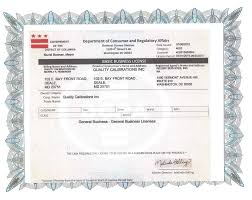
Real estate is an industry that spans many sectors, including residential and commercial, with a variety of stakeholder interests. These industries are affected due to factors like population shifts as well as interest rates and availability of capital. These factors can interfere with business plans, and consulting professionals can help navigate these complexities.
Benefits of hiring a real estate consultant
Hiring a real estate consultant can be beneficial to you in many ways. This person has experience in the field and is familiar with the market trends and the best ways to sell a property. They also have connections with other real estate agents and can provide the best references. They can also help with the introduction of potential sellers to your property.
It is important to hire an expert in your field so you don't make common mistakes. A professional can anticipate possible problems and help you avoid them. Additionally, an expert can assist you with the paperwork to ensure that the transaction goes smoothly. This will save you both time and energy.

The presence of a real estate agent in the transaction will prevent you from getting a low offer from the buyer. The seller will be able to deal with a professional who will know what the market is worth and what the buyer's budget is. The agent will be able to offer a more realistic price and start negotiations. Additionally, hiring a real estate agent will make you look like a more professional and invested person.
Responsibilities of a realty consultant
A real estate agent's job includes many responsibilities. These include managing cash, accounting, and creating marketing plans and PowerPoint presentation. They also interact with lenders and clients. These duties are not the only ones. Real estate consultants also need to have excellent negotiation skills in order to secure the best real-estate deals for their clients.
The majority of real estate agents work as consultants. They assist clients in purchasing, selling, or renting property. Their clients include individuals as well as businesses depending on their knowledge. Their job requires them to have an in-depth knowledge of the realty market and must be willing to take the time and explain all the details.
A real estate consultant can work in an office or out on the roads, inspecting properties and meeting clients. Some consultants may also work evenings and weekends. Their salary is dependent on their education and experience. They may also be eligible for bonuses and commissions. The average salary for real estate agents is high, but the future employment outlook for this job is poor.

Skills required of a real estate consultant
Real estate agents must be able and willing to listen to their clients. They must be able to communicate and educate clients so they can make good decisions. Agents with these skills can build better relationships and earn their trust. They should also be able to teach. They must be able to explain complex concepts to clients, and offer them information that they can use. This job requires patience and patience.
A real estate consultant works for a real estate company or independently. They must be able to develop leads, either through networking or cold calling. They should be able to help clients with their buying decisions. A realty consultant should not only be able advise clients but also research the market and identify trends or demographics that might be beneficial to them. They must also be able devise strategies to increase the value of clients' properties.
FAQ
What skills will I need to be a consultant?
As a consultant, you should have both strong interpersonal skills and analytical skills. This is essential because you will be working on projects that you don't know the details of. You need to be able to manage people quickly and solve problems efficiently.
You also need to have excellent communication skills. Clients expect a response within 24 hours. They assume that you won't respond if they don't hear from them within 24 hours. It is crucial that you keep them up to date and make sure they know what's happening.
What industries use consultants
There are many types and styles of consultants. Some focus on one particular type of business while others specialize in more than one area.
Some consultants work only for private companies, while others represent large corporations.
Some consultants also work internationally and can help companies around the globe.
How is consulting different from freelancing
Freelancers can be self-employed people who provide their services to clients, without the involvement of employees. They usually charge an hourly rate based on how much time they spent on a project. Consultants typically work for agencies and companies that employ them. Their salaries are paid usually monthly or annually.
Consultants often have more flexibility, while freelancers can choose to work when they want and set their own rates. However, consultants often have better benefits, such as health insurance, vacation days, sick leave, retirement plans, etc.
Statistics
- My 10 years of experience and 6-step program have helped over 20 clients boost their sales by an average of 33% in 6 months. (consultingsuccess.com)
- WHY choose me: Why your ideal client should choose you (ex: 10 years of experience and 6-week program has helped over 20 clients boost their sales by an average of 33% in 6 months). (consultingsuccess.com)
- 67% of consultants start their consulting businesses after quitting their jobs, while 33% start while they're still at their jobs. (consultingsuccess.com)
- On average, your program increases the sales team's performance by 33%. (consultingsuccess.com)
- Over 50% of consultants get their first consulting client through a referral from their network. (consultingsuccess.com)
External Links
How To
What does a typical day look like for a consultant?
Depending on what type of work you do, your typical day may vary. But generally speaking, you will spend time researching and planning new ideas, meeting clients, and preparing reports.
Clients will often meet with you to discuss their problems. These meetings can take place over the phone, via email, online, or face to face.
The proposal is a document that outlines your ideas and plans to clients. You will need to discuss these proposals with a mentor or colleague before you present them to clients.
You will need to create content after all your planning and preparation. You might be creating articles, videos, editing photos, writing interviews, or designing websites.
It depends on the project's scope, you might need to do some research to collect relevant statistics. It may be necessary to know how many customers are currently using your products or services.
Once you have gathered enough information, it's time to present your findings to clients. You can present your findings verbally or in writing.
Finally, you must follow up with clients after the initial consultation. You could phone them occasionally to check on things or send an email asking them to confirm that you have received their proposal.
This process takes time, but it's important to ensure that you stay focused and maintain good relationships with clients.